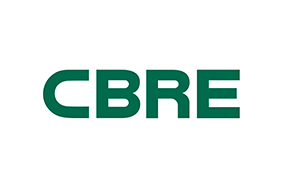Climate Week Takeaways To Accelerate Sustainability in the Built Environment
Partnerships and collaboration can help companies simplify challenges
Published 10-02-23
Submitted by CBRE Group, Inc.

The complexity of sustainability challenges is inhibiting progress to decarbonize buildings, responsible for nearly 40% of carbon emissions globally. Although Climate Week’s 600+ event agendas mentioned “solutions” 40 times more than “problems,” according to The Wall Street Journal, we can’t overlook the underlying challenges to making faster gains.
The world is not moving fast enough. Our industry is not moving fast enough. Climate Week’s proliferation of sessions, companies and solutions illustrated how much activity there is. But companies need to be more strategic. Making our work more urgent, and more difficult, are a wave of new regulations and evolving stakeholder expectations.
Coming out of Climate Week, we are thinking hard about how companies like CBRE cut through the complexity of sustainability and simplify it. One clear takeaway is that establishing and expanding partnerships and collaborating in innovative ways will be critical. Looking at problems in a holistic manner and identifying and addressing gaps will enable us to make more rapid progress. Here are some observations on how to tackle these challenges:
01 Data and Reporting need to be normalized. Laws in place in the EU, with others on the way in California and likely from the SEC, mean the era of voluntary carbon emissions reporting as the foundational reporting mechanism is over. While voluntary reporting will still be expected by stakeholders, mandatory reporting will drive additional complexity – and, hopefully additional consistency. Once we have data that we can normalize and compare with quantitative models, the ability to compare companies within and across industries will become much easier. We have seen this in other markets as data became more structured. The market is moving in this direction and regulatory regimes should help us get there.
Companies have a role to play here as well. We need to partner with our clients, auditors, reporting consultants and industry peers to drive consistency within and across company boundaries. Within our companies, we need to partner with both finance and procurement teams to capture full value chains, as well as work externally with GHG accounting and assurance experts to ensure accurate reporting. Companies need to get better at understanding their Scope 3 emissions and work with data experts to meet these new requirements. Importantly, an updated reporting approach is a tool to accelerate progress toward sustainability goals and inform overarching strategy, not the end result.
02 It’s time to rethink the nature of business relationships. In today’s world, win-win solutions are changing. Where realizing economic value may have traditionally been the litmus test for evaluating outcomes, carbon is now central to the equation. This means that our industry must rethink landlord-tenant relationships. Optimizing resources to make buildings as efficient as possible is increasingly becoming a mutual goal. Yet, our contracting vehicles and incentive structures haven’t fully adapted to this underlying change. When space is leased, landlords and tenants need to work together to drive efficiency, electrification and decarbonization. That requires new ways of partnering and thinking about outcomes. For example, leases need to be structured to incentivize sustainable improvements in buildings so both parties benefit from lower emissions. That requires an understanding of how emissions are calculated and reported, as well as the economic impacts and burdens of lowering carbon emissions. Increasingly, energy, water and space efficiencies may be achieved by sharing costs, while also helping building owners meet local building performance standards and avoid fines.
03 The rules around energy are changing. Surge pricing, demand-response, interconnection agreements and electrification. All of these things are creating more confusion. The historical norm of buying energy from the grid and treating energy as a relatively stable-priced commodity is quickly becoming a thing of the past. Renewable energy from wind, solar and biofuel are on the rise, and the mix on the grid and what it costs vary by availability and time of day. We cannot simply flip a switch to carbon-free energy without investing in infrastructure transformation – from the sources to the transmission to the storage. And it is incredibly complicated. There were many discussions last week where even leading experts on the grid and decarbonization fundamentally are unclear about the future business and operational models that will get us to decarbonization at scale. The markets need organizations like the Clean Energy Buyers Association (CEBA) and RMI now more than ever to help create thoughtful models and navigate these changes.
There were so many informative discussions, meetings, sessions, connections and positive momentum at Climate Week. The road ahead certainly lacks clarity, but the number of people pushing for the creation of new solutions has never been greater. It’s a reminder of how much work there is to be done.

CBRE Group, Inc.
CBRE Group, Inc.
CBRE Group, Inc. (NYSE:CBG), a Fortune 500 and S&P 500 company headquartered in Los Angeles, is the world’s largest commercial real estate services and investment firm (in terms of 2013 revenue). The Company has approximately 44,000 employees (excluding affiliates), and serves real estate owners, investors and occupiers through approximately 350 offices (excluding affiliates) worldwide. CBRE offers strategic advice and execution for property sales and leasing; corporate services; property, facilities and project management; mortgage banking; appraisal and valuation; development services; investment management; and research and consulting. Please visit our website at www.cbre.com.
More from CBRE Group, Inc.

